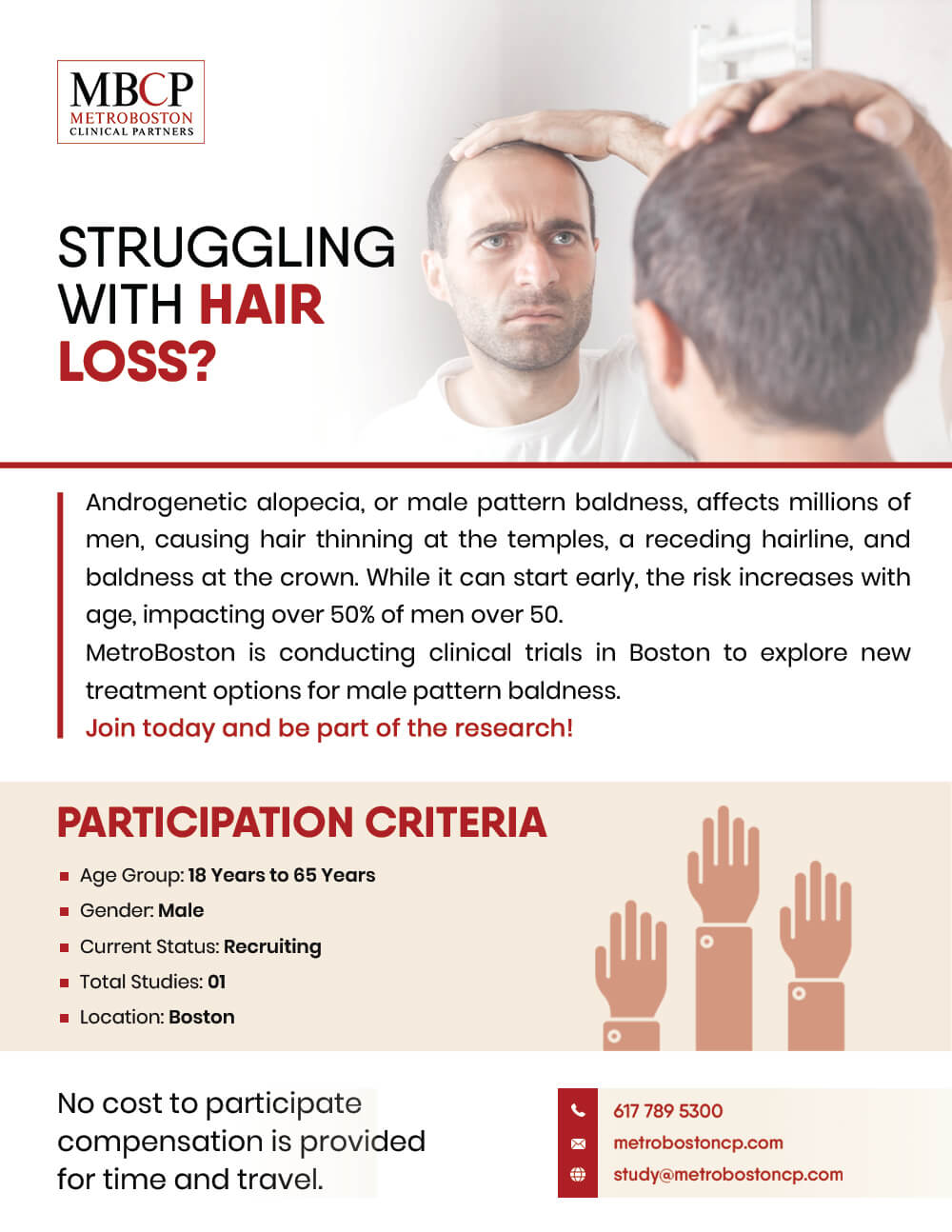Join androgenetic alopecia clinical trials to explore potential new treatments for male hair loss.
Let's Explore
Advancing Solutions for Receding Hairline!
Androgenetic alopecia, commonly known as male pattern baldness, is a leading cause of hair loss in men. It follows a distinct pattern, starting with hair thinning above both temples. Over time, the hairline recedes, forming an “M” shape. Hair loss also occurs at the crown, which can eventually lead to partial or complete baldness.
This condition affects about 50 million men in the United States. While it can begin in the teenage years, the risk increases with age, affecting more than half of men over 50.
If you’re experiencing hair loss, consider participating in clinical trials exploring potential new treatments. MetroBoston is conducting androgenetic alopecia clinical trials in Boston to find promising options for male pattern baldness.
Enroll Now

Tolerability, Efficacy, and Safety Evaluation
Eligibility Criteria
Enroll in androgenetic alopecia clinical trials in Boston and contribute to innovative research that could lead to new treatments for male hair loss.
Age Group
18 Years to 65 Years
Gender
Male

Condition
Androgenetic Alopecia
Current Status
Recruiting
Total Studies
01
Location
Boston
Frequently Asked Questions
Will hair grow back with androgenetic alopecia?
If you have androgenetic alopecia, hair regrowth is possible, but it varies from person to person. While this condition can’t be completely prevented, various treatments can help slow down hair loss or even restore hair permanently.
What is the cause of androgenetic alopecia?
Scientists are still exploring the risk factors behind this condition, but many remain unknown. However, they have found that male pattern baldness is linked to androgens, especially a hormone called dihydrotestosterone (DHT).
Is androgenetic alopecia hereditary?
Yes, genetics play a significant role in androgenetic alopecia. If your family has a history of hair loss, you may be more likely to experience it.
Can you reverse androgenetic alopecia?
There is no definitive cure for androgenetic alopecia, but holistic therapies can help slow hair loss and promote regrowth. However, treatment effectiveness varies from person to person.
Will I be cured at the end of the research study?
Clinical trials for androgenetic alopecia are designed to assess the safety and effectiveness of new treatments. However, a guaranteed cure is not promised. Results vary based on the treatment being tested, individual response, and the specifics of your condition.